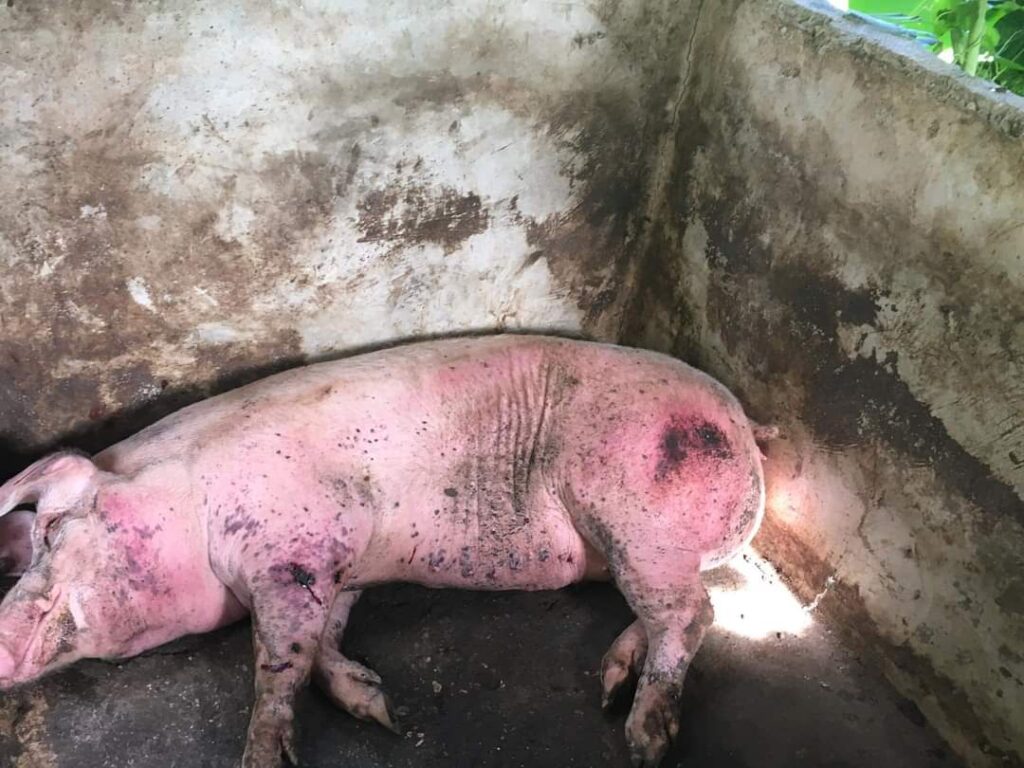
African Swine Fever
Dear valued pig‑farmers and customers of AfriMach Animal Feeds,
Thank you for your commitment to healthy herds and sustainable production. At AfriMach, we understand how critical pig health is to your livelihood — and today we’re addressing what is perhaps the single greatest threat to pig‑farming globally: African Swine Fever (ASF). This is not just a disease issue — it’s a production, economic and community stability issue.
In the following article we go beyond basic advice. We provide an in‑depth look at ASF: what it is; why it matters; how to recognise it; and how you can protect your herd through rigorous feed and farm practices. Our aim: you leave with practical, serious, implementable guidance right now.
What is African Swine Fever?
ASF is a highly contagious viral disease that affects domestic pigs and wild suids: once infected, mortality rates can reach nearly 100 %. WOAH+2FAOHome+2
Importantly: it does NOT infect humans. Food Safety+1
There is currently no effective vaccine or cure available. Food Safety+1
The virus is extremely resilient — it can survive in pork products, carcasses, soil and equipment for long periods. Encyclopedia Britannica+1
Originally described in Kenya, ASF has now spread to more than 50 countries, posing a grave threat to pig‑farming enterprises worldwide. WOAH
Why is it so important for you?
-
Because when ASF strikes, the losses are not just in individual animals but entire herds, income streams and supply chains. FAOHome+1
-
Feed suppliers and nutrition partners like AfriMach must recognise that the weakest link in production may well be disease. Protecting pig health safeguards the value of our feed and your investment.
-
The disease can also lead to restrictions on movement, trade bans and reduced market access — even if your herd remains healthy. European Food Safety Authority
How ASF Spreads — The Hidden Risks
-
Through direct contact between infected and healthy pigs (including wild pigs). Agriculture Victoria+1
-
Via contaminated materials: clothing, vehicles, equipment, footwear, and even feed or pork products containing the virus. Department of Homeland Security
-
By feeding pigs food waste or swill containing infected pork or offal. A major risk in many small‑holder systems.
-
Through wild pigs and ticks in some regions — less common in certain geographies but still worthy of vigilance. European Food Safety Authority
Recognising the Warning Signs
Early detection is critical. Watch for these red flags in your pig units:
-
High fever, lethargy, sudden drop in feed intake. FAOHome
-
Skin reddening, blotchy patches especially on ears, snout, legs. Agriculture Victoria
-
Internal bleeding, coughing, vomiting, diarrhea—depending on the strain and progression. Encyclopedia Britannica
-
Abortion in pregnant sows, rapid death of apparently healthy pigs.
If you see any of these signs — act immediately: isolate suspected animals, contact your veterinary authority, stop movements, disinfect.
How AfriMach and You Can Protect Your Herd
Since there’s no treatment or vaccine, prevention is the only defence. Here’s how to put in place a strong protective programme:
a) Feed & Nutrition Integrity
-
Ensure your feed comes from trusted, certified sources. Avoid any risk of contamination — whether by wild animals, pests or infected products.
-
Design feeding programmes that strengthen pig immune status and general health — well‑fed pigs with good body condition are better able to resist, even though ASF remains highly virulent.
-
Avoid feeding food waste, swill, or untreated meat products to pigs. This is one of the most frequent disease introduction routes.
b) Farm Biosecurity
-
Limit farm access: maintain clean footwear, clothing, dedicated equipment for pig farms only.
-
Vehicles, boots, clothing returning from elsewhere should be disinfected.
-
Quarantine new stock, avoid mingling with pigs of unknown health status.
-
Implement strict pest and rodent control: insects, rodents and wild pigs can carry contamination.
-
Keep pigs separated from wild pigs or feral suids if relevant to your region.
c) Hygiene and Environment
-
Maintain clean housing, bedding and feeding areas. Wet, dirty environments increase stress and disease susceptibility.
-
Disinfect floors, troughs, equipment regularly.
-
Safe disposal of carcasses: in the event of death, follow recommended procedures — proper burial or incineration as per your local regulations.
d) Movement and Record‑Keeping
-
Record all movements of animals in and out of your farm, visitors, feed suppliers, vehicles.
-
Limit movements of pigs, equipment and vehicles between farms.
-
If an outbreak is suspected, stop all non‑essentials and contact veterinary authorities.
-
Maintain feed and animal health records: this helps in tracing sources and defending your business.
What to Do If You Suspect ASF
-
Immediately isolate the sick pig(s).
-
Inform your veterinary authority without delay.
-
Stop movements of pigs, pork products and possibly vehicles until cleared.
-
Disinfect the area thoroughly.
-
Do not attempt to sell or move pigs under suspicion — it’s illegal and risky.
Why This Matters for AfriMach Food Feeds & You
At AfriMach we are committed to supplying high‑quality feeds and supporting your productivity. But the value of good feed is only realised if your herd remains healthy. ASF doesn’t just impact one pig — it threatens operations, livelihoods and even local supply chains. By implementing the precautions above, you protect your herd, your investment in feed, and the broader pig‑farming community.
Classical swine fever
African Swine Fever is among the most serious threats to pig production today. While there is no cure or vaccine, prevention through rigorous biosecurity, strong feeding programmes, and vigilant monitoring makes all the difference. At AfriMach Animal Feeds we stand beside you — ready to supply feed, advice and support so your herd remains robust and your business stays thriving.
If you need help with feeds, farm hygiene planning or early‑warning monitoring for your pigs — please contact us. Stay vigilant, stay safe — and let’s keep your herd healthy together.